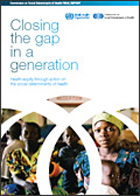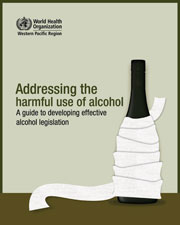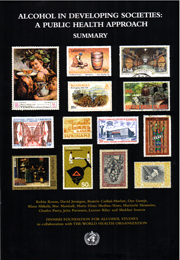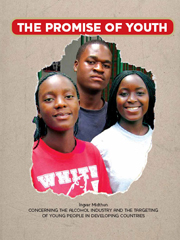
WHO Commission on Social Determinants of Health
Closing the gap in health inequities in a generation is the ambitious goal described in the report from the WHO Commission on Social Determinants on Health. (Photo: WHO)
The Commission calls on the WHO and all governments to lead global action on the social determinants of health with the aim of achieving health equity. “It is essential that governments, civil society, WHO, and other global organizations now come together in taking action to improve the lives of the world’s citizens. Achieving health equity within a generation is achievable, it is the right thing to do, and now is the right time to do it”, concludes the WHO Commission in the introduction of its report.
Alcohol consumption as a public health risk factor is dealt with in several sections of the report. The WHO report says that “processed foods and alcohol are two prime candidates for stronger global, regional, and national regulatory controls”. It continues by pointing to the fact that in recent decades, under globalization, market integration has increased. This is manifested both in new production arrangements and accelerating commercialization of goods and services.

The report opens by underlining that social justice is a matter of life and death. “It affects the way people live, their consequent chance of illness, and their risk of premature death. We watch in wonder as life expectancy and good health continue to increase in parts of the world and in alarm as they fail to improve in others. A girl born today can expect to live for more than 80 years if she is born in some countries – but less than 45 years if she is born in others. Within countries there are dramatic differences in health that are closely linked with degrees of social disadvantage. Differences of this magnitude, within and between countries, simply should never happen”.
The WHO commission recommends that health and health equity is placed at the heart of urban governance and planning and that “urban planning promotes healthy and safe behaviours equitably, through investment in active transport, retail planning to manage access to unhealthy foods, and through good environmental design and regulatory controls, including control of the number of alcohol outlets”.
The report “Closing the gap in a generation” can be downloaded here.
![]()
![]()
Developed with CustomPublish CMS by Nettinfo AS




